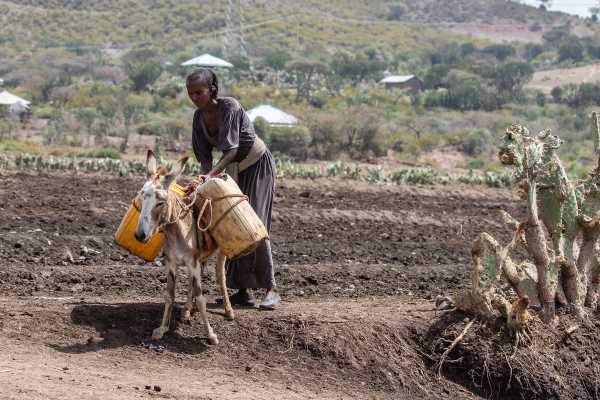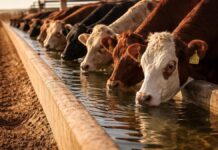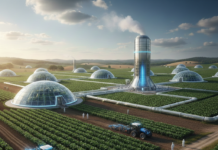By : Jane Marsh
The agricultural sector — crops, livestock, and seafood — is a multi-billion-dollar industry worldwide. For a robust farming economy to flourish, climate conditions need to be suitable for growth.
Climate change poses severe implications for food security on a global scale. According to the World Meteorological Organization (WMO), food insecurity rises by 5-20% in sub-Saharan Africa with every drought or flood. The increase in food insecurity can further impact people’s health and susceptibility to disease, gender inequality, and children’s school attendance.
As increasing climate change and extreme weather continue to disrupt progress for millions of people living in poverty, implementing an effective climate adaptation plan in Africa can help with recovery.
Climate Change Impacts on Agriculture
In sub-Saharan Africa, ongoing climate change is likely to decrease gross domestic product (GDP) by 3% by 2050, with worsening economic, health, and environmental effects. For example, rising temperatures and precipitation can create a breeding ground for bugs, fungi, and weeds, leading to greater pesticide use and compromised crop development.
The Food and Agriculture Organization of the United Nations (FAO) estimates about 40% of global crop production is lost to pests each year. In East Africa, increased rainfall and vegetation blooms have attracted a plague of destructive pests, such as desert locusts, that devour crops and pastures. North America is home to several notable destructive pests as well.
Other impacts of climate change on food security include:
- Rising temperatures that decrease maize crops by 24% and wheat crops by 17% by 2030.
- Excess carbon dioxide (CO2) decreases protein and nutrients in wheat, rice, soybeans, and maize, leading to nutrient deficiencies in people.
- Heat stress influences livestock’s vulnerability to disease while decreasing fertility and milk production.
- Warming sea temperatures may cause marine disease outbreaks and affect the reproduction and migration of aquatic species.
Food Security for the Future
To address the food crisis in sub-Saharan Africa and similar nations worldwide, a series of climate adaptation measures are necessary.
Charles A. Ray, a member of the Board of Trustees and Chair of the Africa Program at the Foreign Policy Research Institute (FPRI), recommends the following climate mitigation actions:
- Consider weather patterns when designing and constructing urban areas.
- Promote sustainability measures in rural communities.
- Integrate clean energy and low-pressure irrigation into agricultural practices.
- Inform vulnerable populations, mainly women who work in the agricultural sector, about weather and climate impacts.
- Enhance research funding for agriculture in Africa.
- Expand access to food and health care in poorer communities.
- Promote intra-African collaboration for conflict resolution and disaster relief.
Zimbabwe has already successfully implemented many of these climate adaptation strategies. For example, its government has created new policies and invested in climate-resilient agricultural practices to safeguard food security.
Zimbabwe’s newer agricultural measures include water harvesting for more drought-resistant crop growth. By encouraging farmers to plant and grow grains that can withstand prolonged droughts, society can adapt to and plan for more significant climate impacts on their food production.
More recently, the World Bank’s Board of Executive Directors approved the Food Systems Resilience Program (FSRP). The FSRP will begin by targeting four African nations — Burkina Faso, Mali, Niger, and Togo — to carry out a climate-resistant agricultural initiative with three main goals:
- Enhance agricultural productivity with climate-smart practices.
- Increase regional value chains and trade.
- Develop a series of agricultural risk management practices.
Additionally, FSRP aims to improve communication regarding agricultural and weather information deemed essential to farmers and policy-makers. Doing so should aid in making decisions that impact the region’s food systems, land governance, and land degradation. The FSRP expects to benefit approximately 4 million people.
Agricultural Practices for a Better Climate
Climate change impacts the agricultural industry in many ways, but agriculture has done plenty of damage to the climate, as well. Harmful fertilizers and pesticides have led to soil and water pollution, while cattle methane emissions increase CO2. Addressing the global food crisis will require sustainable changes to traditional agricultural operations.
Bio: Jane is an agriculture and environmental journalist and the founder and editor-in-chief of Environment.co, where she covers sustainability and eco-friendly living.








